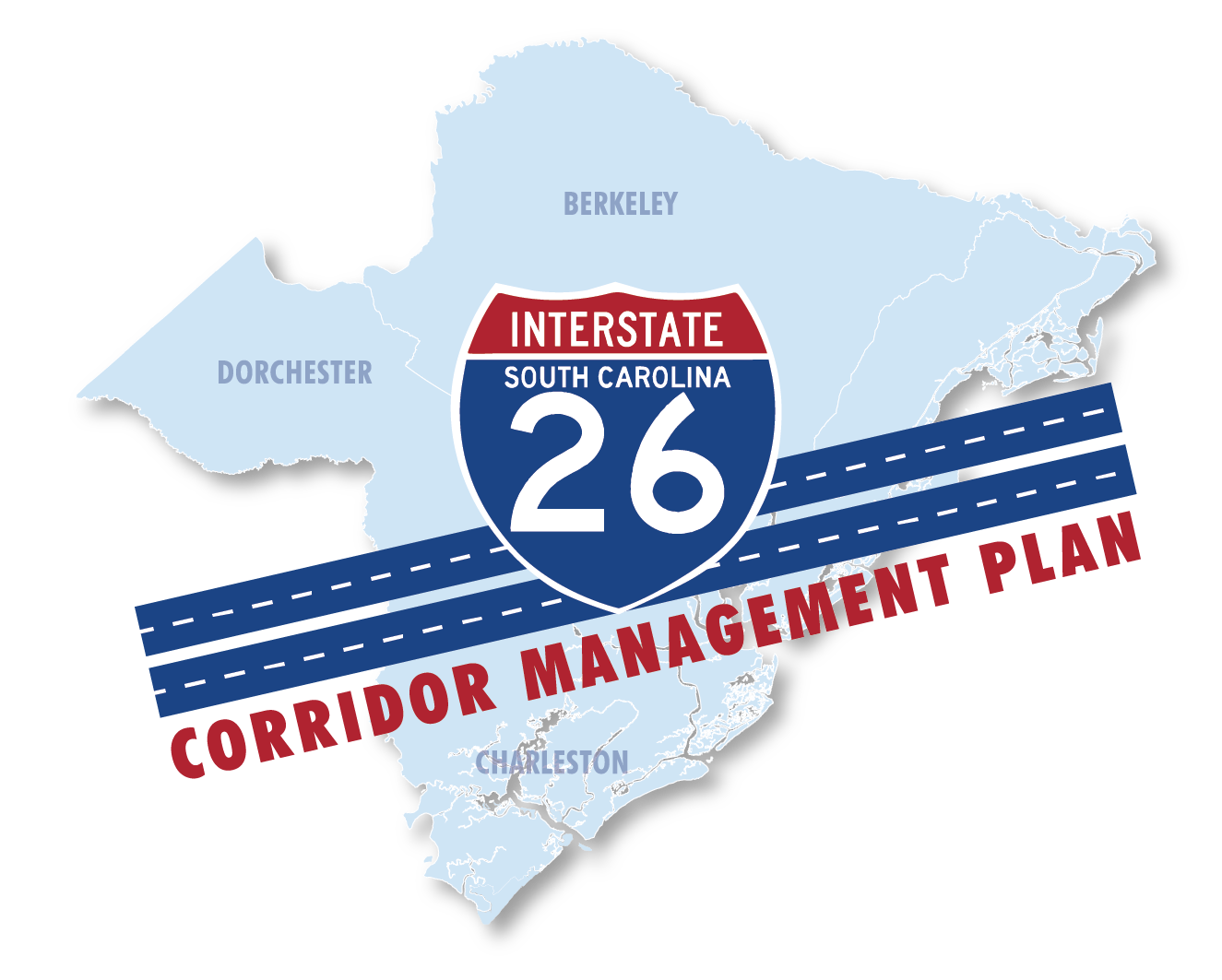Project Fact Sheet
The Corridor Analysis for I-26 between US 17 in Charleston, SC and Exit 187 in Ridgeville, SC considers approximately 30 miles of I-26, including the impacts of the new Volvo Interchange.
A Congestion Management Process which identifies and vets strategies by performance measures is guiding this analysis. Four identified approaches are being considered:
Travel Demand Management - Strategies to effectively reduce the overall travel demand or shift demand out of the peak travel periods.
- Carpools/Ridesharing Matching
- Park and Ride
- Vanpools
- Transit Pass Incentives
- Financial Incentives
- Telecommuting
- Compressed Work Week
- Work Flex Time
- Staggered Work Hours
- Bike/Walk Enhancements
- Education, Promotion, Marketing
Modal Strategies - Opportunities to shift single occupancy trips to transit and/or truck freight trips to other modes.
- Transit: improving existing transit routes, adding new transit routes, improving connectivity to/from stops, improve transit facilities & equipment, public/private partnerships, zoning & transit-oriented developments (TOD), or bus rapid transit (BRT).
- Freight: understand and realize benefit of intermodal split, peak-hour incentives/disincentives, truck routes on primary/secondary roadways, truck parking.
Traffic Operational Improvements : Low cost improvements to improve the utilization the existing capacity of corridors and safety such as geometric intersection improvements, pavement marking improvements, enhanced signage, incident management, intelligent transportation systems, or managed lanes.
Capacity Improvements: Managed Lane (high-occupancy managed lanes (HOV) or high-occupancy toll managed lane (HOT)) construction projects developed to add to the capacity of the corridor.
The study team is being guided by a Steering Committee of transportation professional from Federal, State, Counties and Municipalities within the study area. Stakeholders representing local business and industry leaders along with State and Local elected officials will provide input at a day-long study workshop. In addition, two (2) public information meetings will provide the opportunity to exchange concepts and ideas, gauge public opinion of the study approach and outcome, and receive study related input.
When completed, this analysis will provide the Berkeley Charleston Dorchester region and the state of South Carolina with a 2045 Corridor Management Plan that includes a phased implementation plan based on a matrix of congestion reduction benefits analyzed by cost.
For more information, contact Chowdhury "Siddiq" Siddiqui, PhD, P.E., PTOE, PTP, CNU-A, System Performance Management Engineer, SCDOT, at (803) 737-1262 or siddiquick@scdot.org
